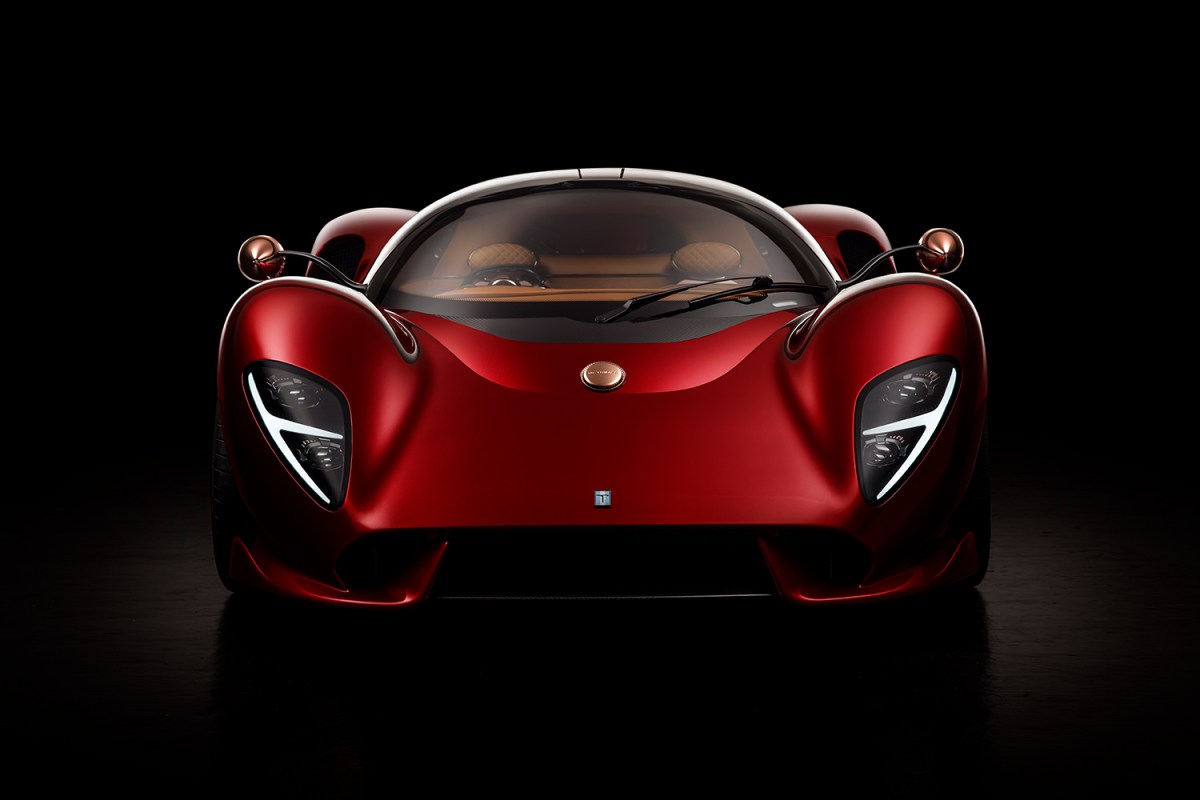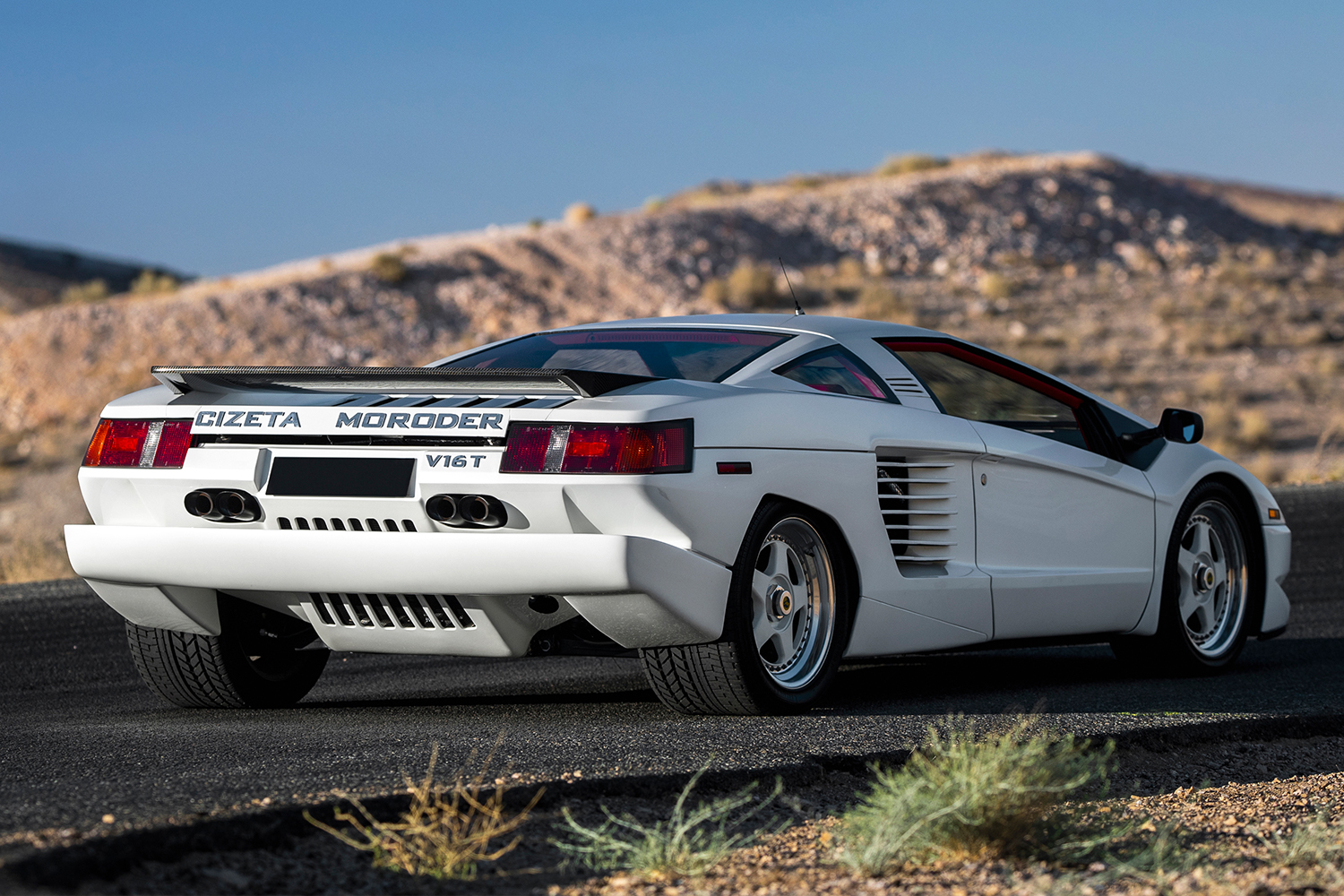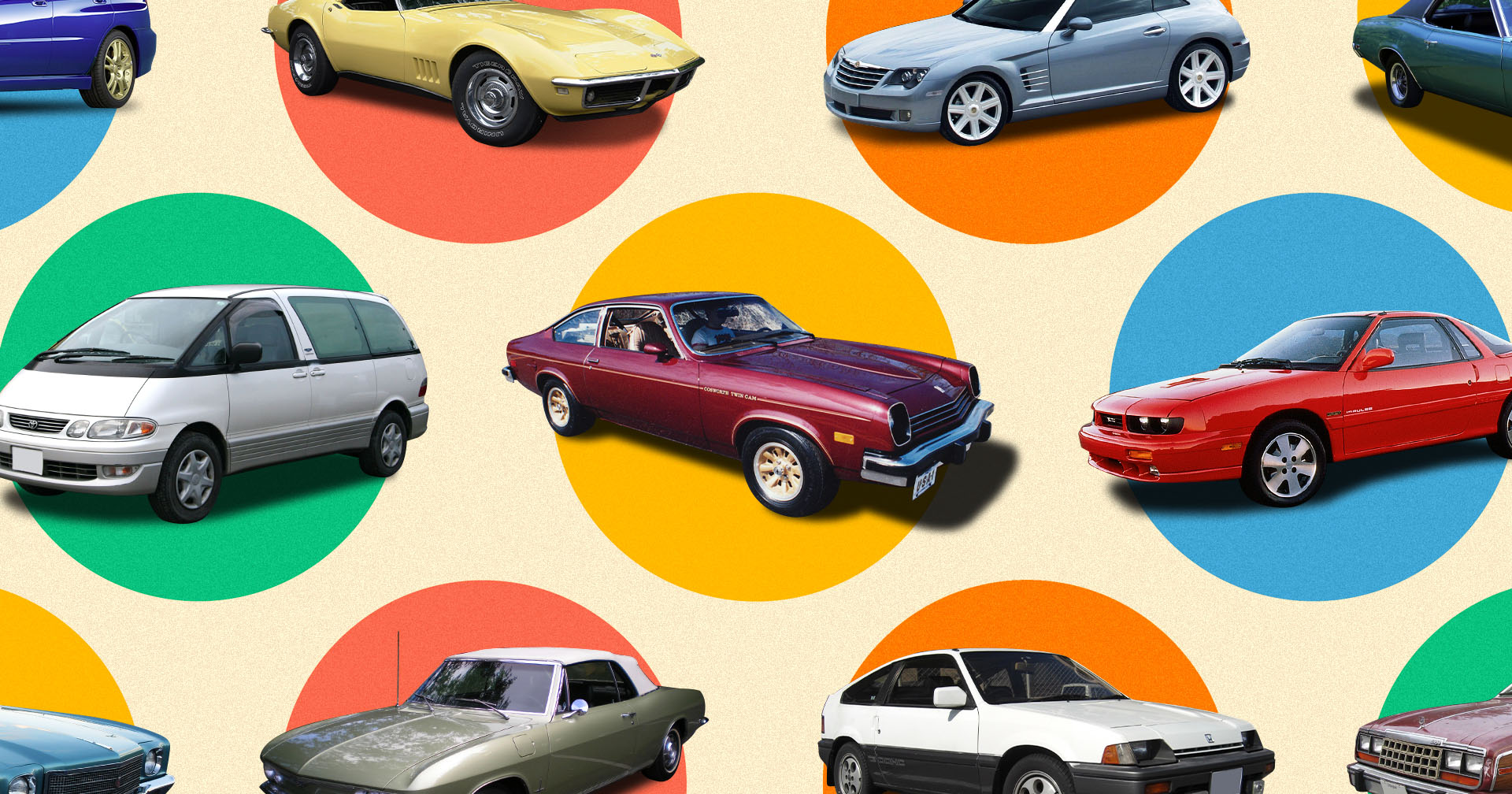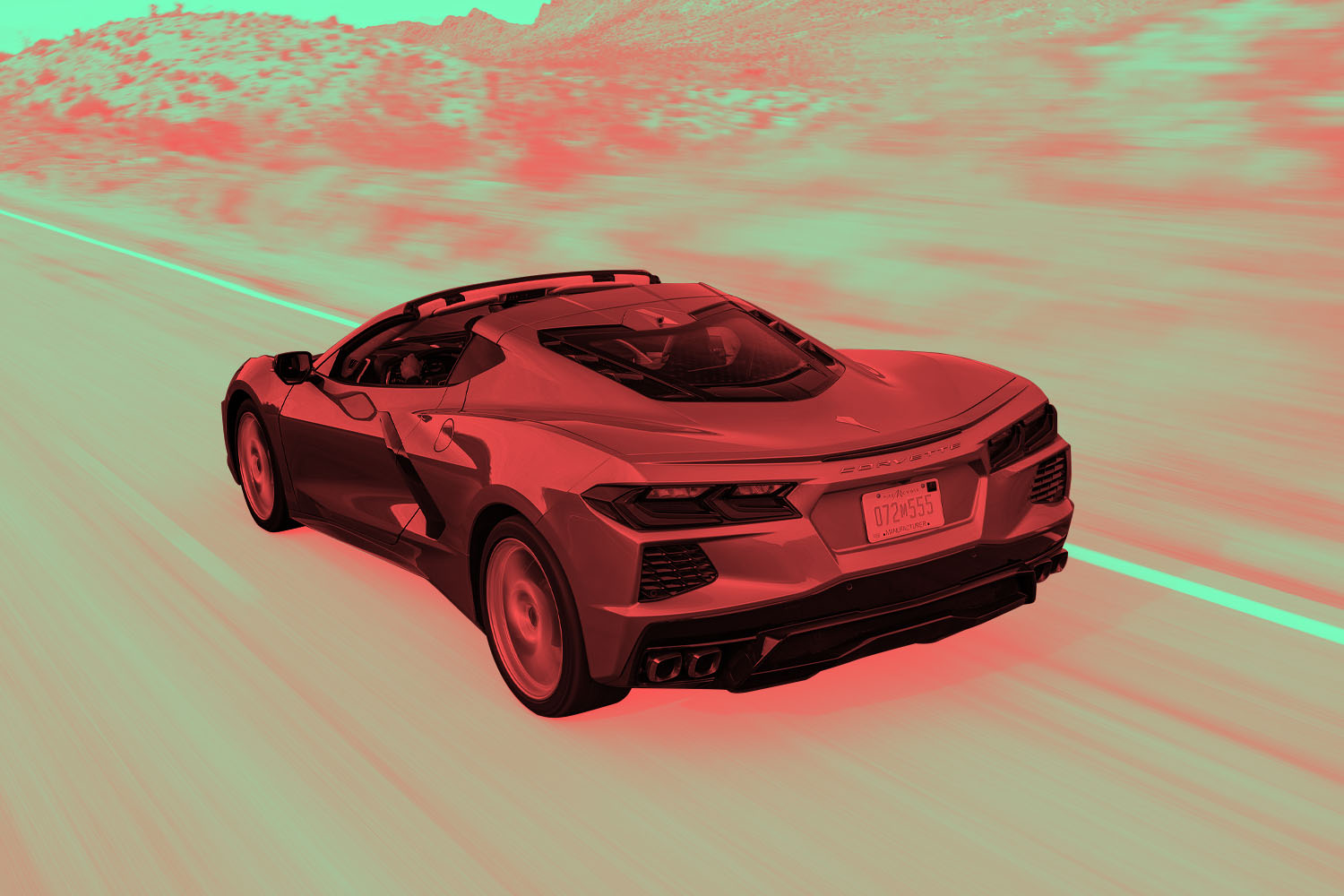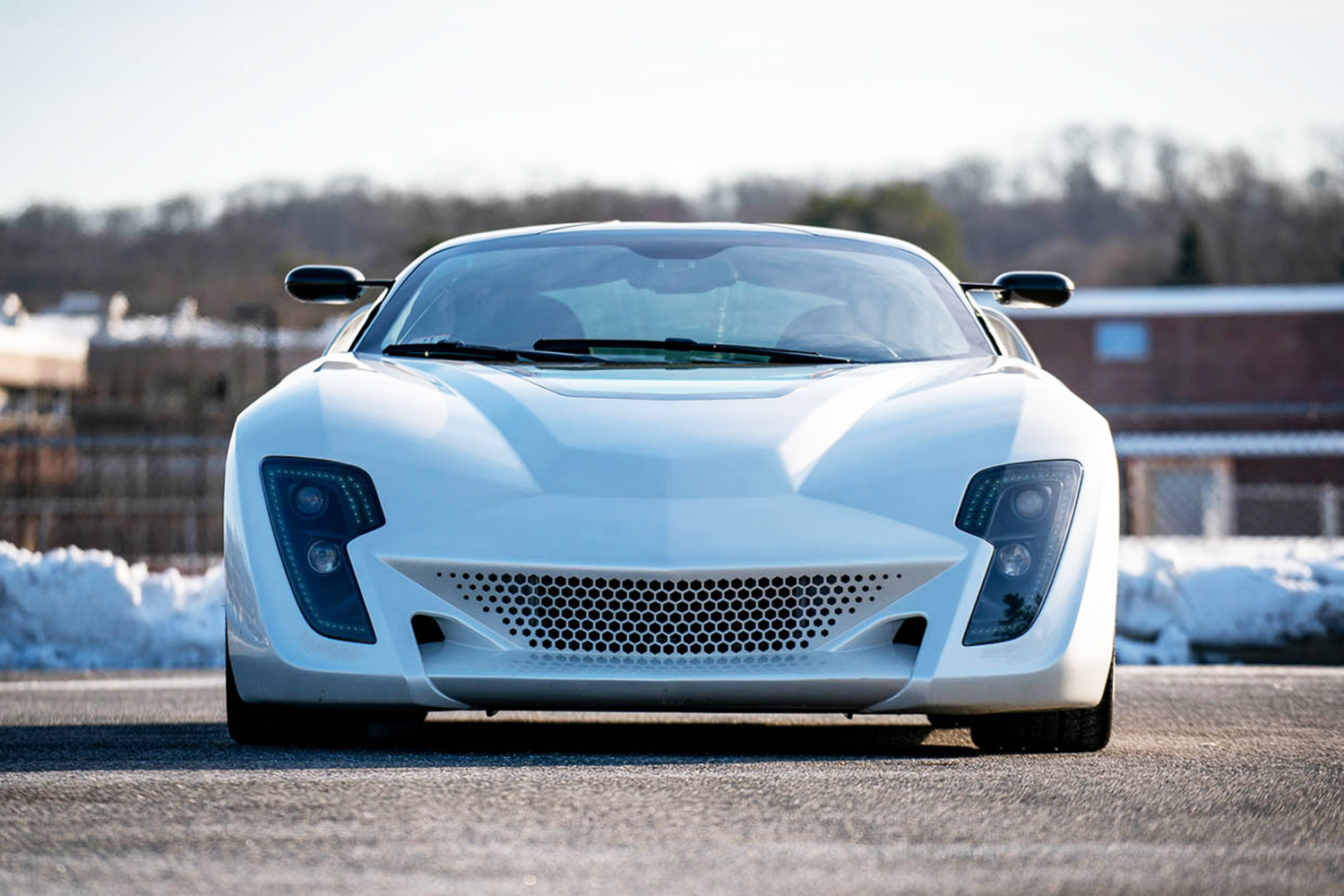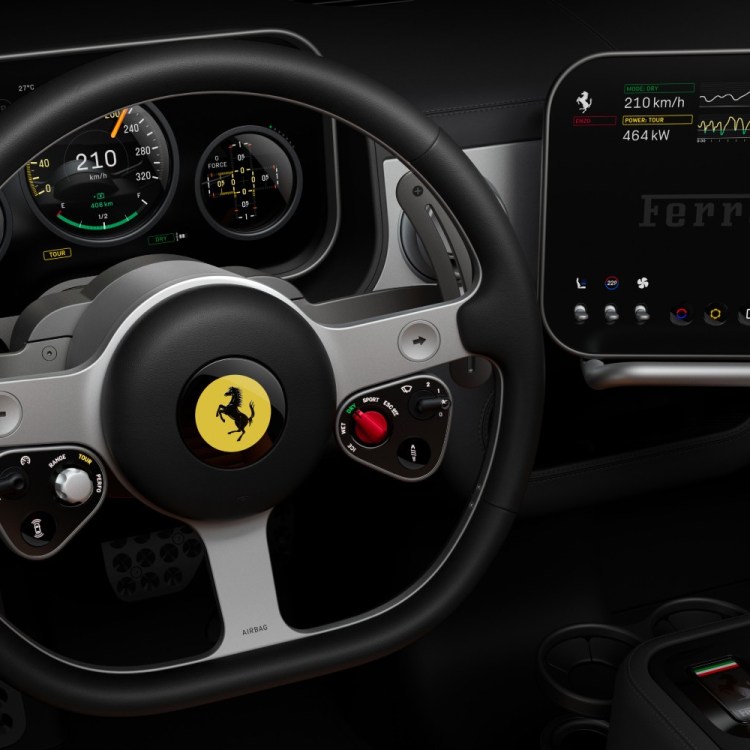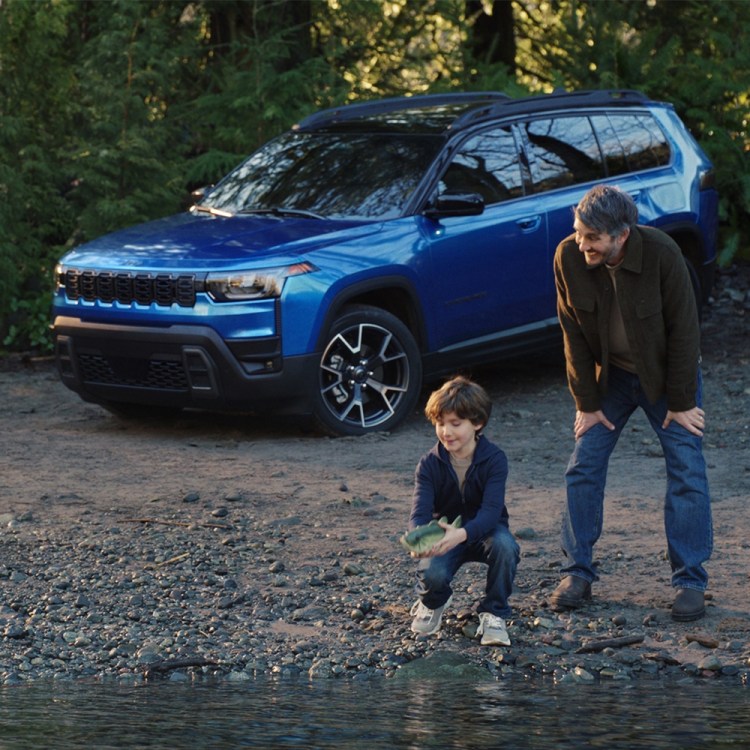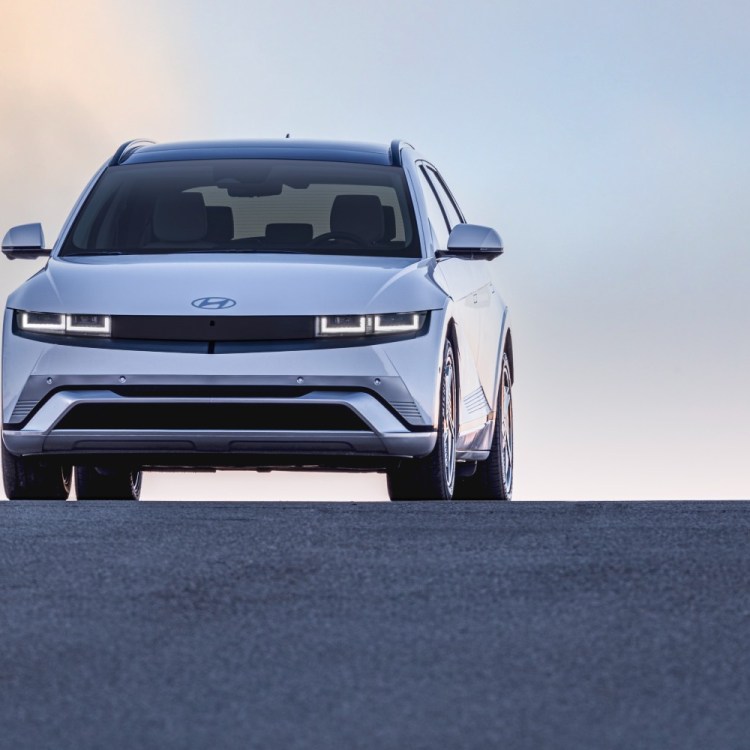There’s an episode of Jay Leno’s Garage in which Leno speaks of his confusion as to why one of the cars in his vast collection isn’t better lauded among petrol-heads. It is, he says, the first mid-engined supercar produced by a U.S. manufacturer, a car misunderstood and undervalued, “the only real supercar that’s for the guy who can’t afford the Ferrari or the Lamborghini.” And he speaks, of course, as someone who can. The car he’s referring to is the 1970s Pantera, a little-known car from the little-known maker De Tomaso — little known, at least, compared with Ferrari or Lamborghini. And that’s a travesty.
Alejandro De Tomaso was an Argentine racing driver and political exile who — with his second wife Isabelle Haskell, a groundbreaking racing driver herself and, helpfully, the granddaughter of one of the founders of General Motors — founded his own company in Italy in 1959. Together they’d develop F1 cars with Dallara for Frank Williams, working alongside car design luminaries like Giorgetto Giugiaro, Carroll Shelby and Peter Brock, the man behind, most famously, the Corvette Stingray. They’d help pioneer mid-engined road cars and the use of lightweight backbone chassis. They’d even become the owner of landmark automotive brands, many of them now better known than De Tomaso, including the likes of Ghia, Moto Guzzi, Vignale and Maserati. In other words, in the story of the car, De Tomaso matters.
Yet, sadly, after Alejandro De Tomaso’s death in 2003, the brand went dormant and in time the company faced liquidation. Some Fiat executives tried to revive it, misappropriated funds instead, and De Tomaso’s assets ended up in the hands of the Italian government — metaphorically boxed away like the Ark of the Covenant in Raiders. And that, it seemed, would be that, if not for collectors of vintage cars like Leno.
Then along came Ideal Team Ventures investment manager Ryan Berris, one of those behind the reboot of Apollo Automobil. He quietly acquired the De Tomaso brand at auction in 2014, became its new CEO and, in 2019, after years of working in secrecy, unveiled the latest model to carry its badge, the P72. It’s a knockout.
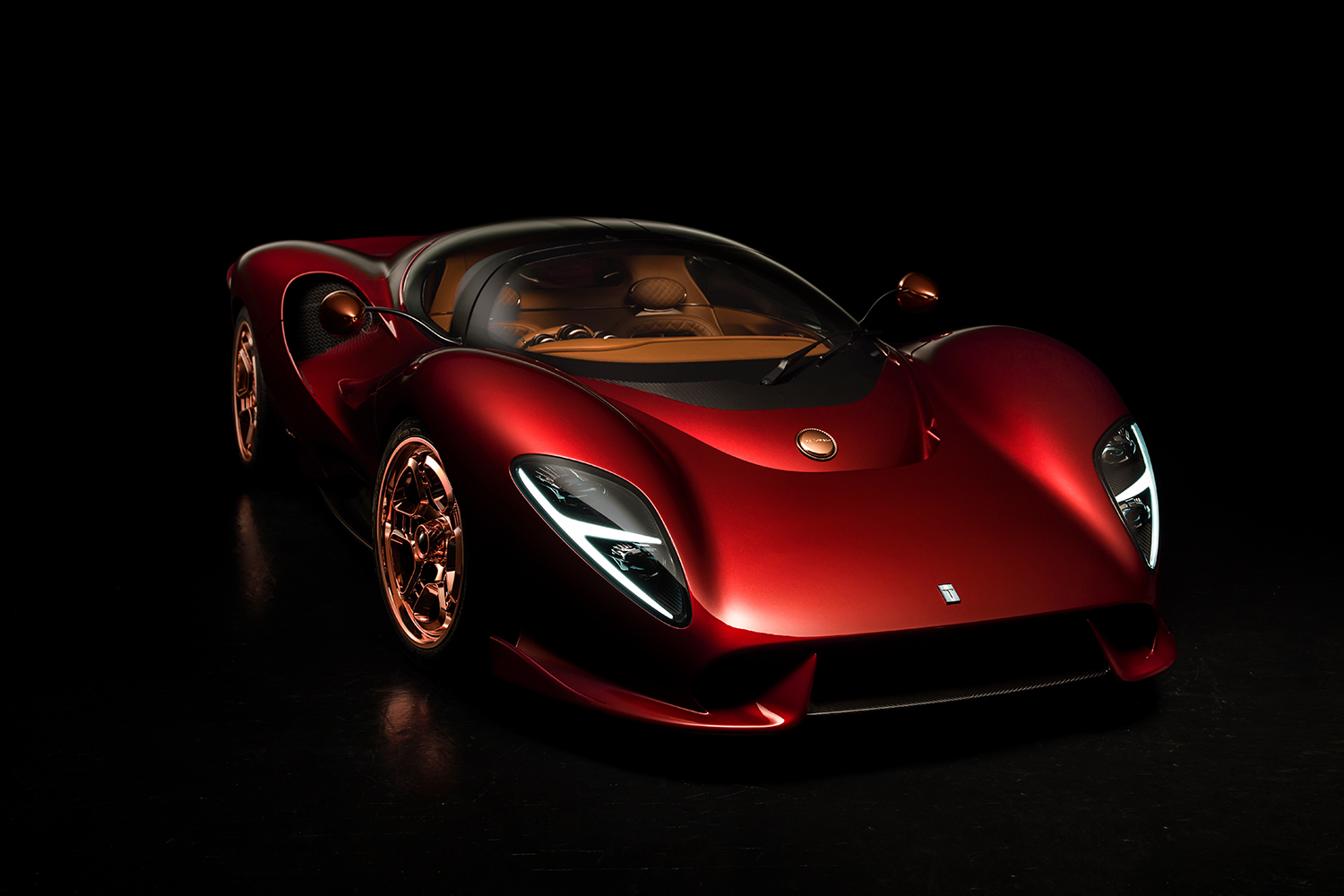
Technically, the P72 is very 21st century, with an all-carbon monocoque chassis — indeed, it claims to be the first all-carbon-fiber production chassis — and a mid-mounted supercharged Ford V8 providing the punch. This is an echo of De Tomaso’s historic relationship with Ford. The automaker was, for a time, the owner of a majority stake in De Tomaso, and the Pantera’s spiritual sister is surely the Ford GT40. But aesthetically, the P72, of which just 72 are being made, is more a throwback to the P70 race car that inspires it. It’s lovingly old-school.
Now the wait for this beauty is almost over. The company has begun construction on a new production facility on the Nürburgring in Germany (Ed. note: those U.S. plans fell through), in partnership with the Capricorn Group, the P72 will undergo the final stages of development testing this year, and, all well and good, the first few of them will be delivered in the early part of 2023.
“Is the P72 a supercar or a hypercar? It’s neither. I don’t want to be gimmicky,” says Berris, knowing he is being at least just a little gimmicky. “But it’s a time machine. Get in the car and it feels very classical, very analogue. It’s manual transmission, there are no screens. This isn’t an Apple Watch. It’s more a Patek Philippe. And that’s because it’s not enough to just try to sell a beautiful car today. People want more. They want the provenance.”
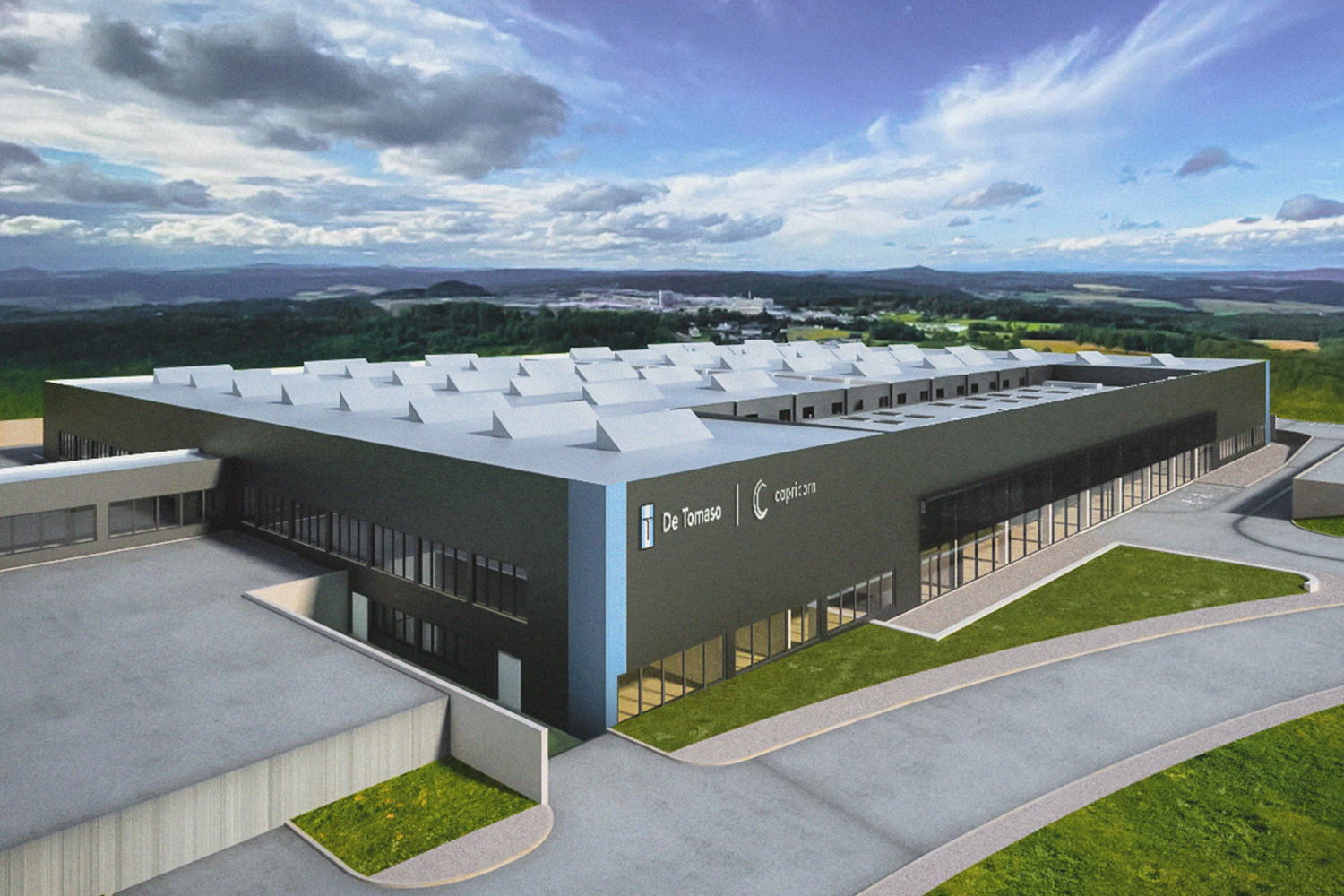
Remarkably, and Berris was certainly surprised, the new De Tomaso didn’t have to go looking for customers. Indeed, it got to spend the last couple of years interviewing and vetting prospective owners. But then perhaps that’s not that surprising. At the time of the P72’s unveiling there were still 25 Pantera owners groups active around the world. Berris even told said prospective owners that the P72 would — and there are shades of Henry Ford here — be available in a strict palette of colors, no exceptions. That’s what you call protecting your brand.
“It’s important we do what we can to control how the car is perceived,” explains Berris. “It’s important to us that we leave a legacy behind, that we tell an untold chapter in De Tomaso’s history. We don’t want to pastiche, or just make a modern Pantera.”
Certainly Berris is aiming to steer a tight ship so that the reborn De Tomaso doesn’t repeat the problems that blighted the original company: internal disputes and clashing visions, such that Shelby left the P70 project just before completion; overreaching without the capital to back up the ambition; and a less than satisfactory manufacturing standard that saw the Pantera cursed with many technical problems — overheating, suspension issues — at least without having first undergone Ford’s full modification overhaul. And, given the P72’s price tag of around $890,000, that’s just as well.
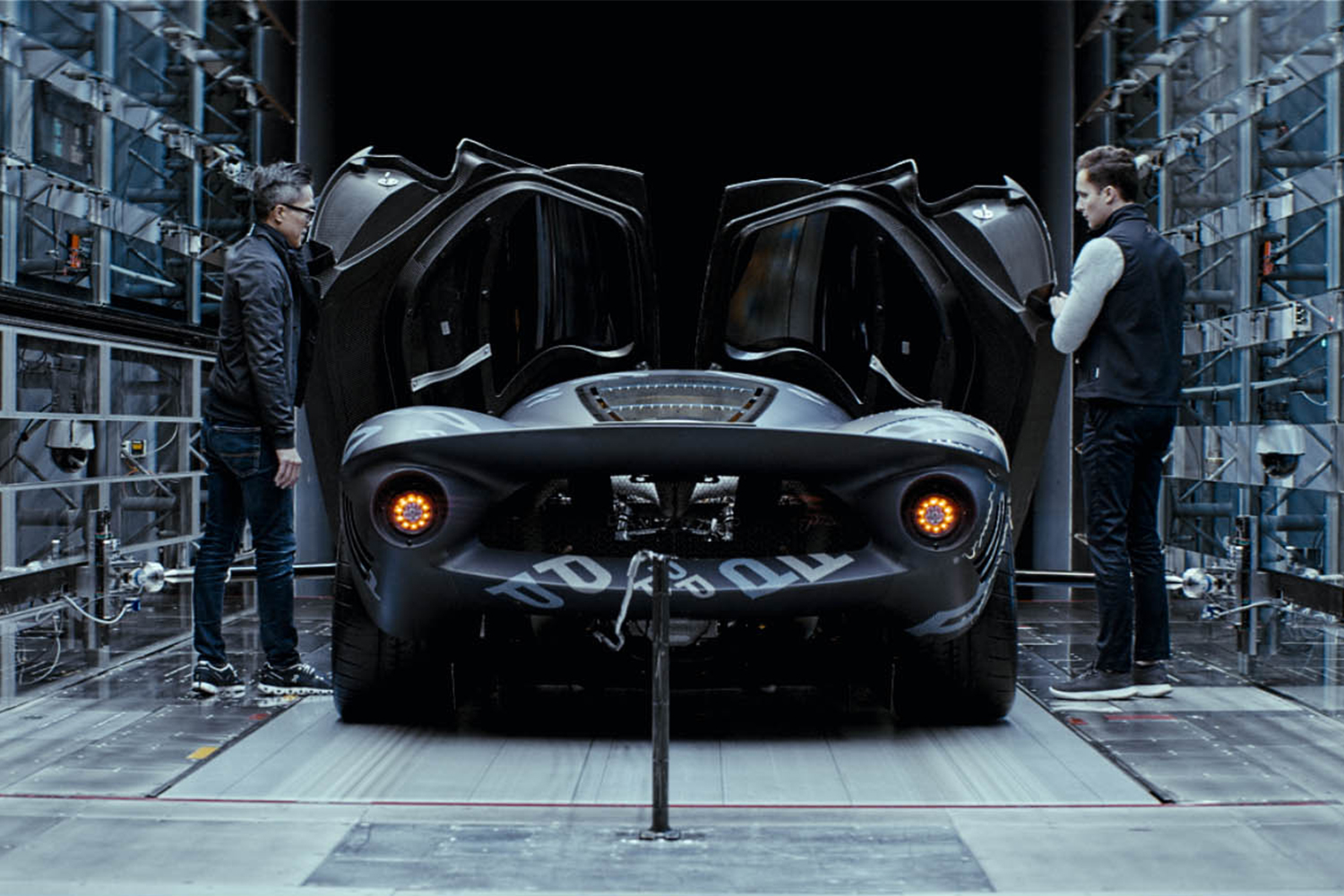
But then the new De Tomaso is trying to do a lot of things from a fresh perspective. Unusually, all of its efforts to date have, for example, been privately financed; prospective owners weren’t expected to lay out a hefty down payment in order to get the project off the ground. It’s operated on very much a skeleton staff, but with the flexibility to scale up quickly if required. What’s perhaps most refreshing of all is that it’s not obsessed with technical specs.
“One of the reasons why we held back talking about the engine in the P72 is that we didn’t want to market it the way supercars typically are — all about horsepower or speed,” says Berris. “We want it to be part of a bigger story of rebuilding a great automotive brand. I think there’s still a place for supercars, much as there was still a place for horses after the invention of the automobile — horses just became more about racing, dressage and so on. But I also think we’re at the start of two century-long cycles, one in finance and the other about how transport is being redefined. De Tomaso was a disruptor then and it’s important it still is a disruptor.”
To this end, one of the more intriguing moves the company has just made is to launch its own in-house digital arts initiative by signing up artist Ash Thorp. Thorp has designed cars before, at least, CGI concepts for the likes of Total Recall, Ghost in the Shell and the upcoming The Batman. Yes, he helped design the new Batmobile. The thinking is that by tapping creative insights from those outside of the traditional automotive sphere, the next De Tomaso car can be more invigorating still.
“The team behind De Tomaso doesn’t come from an automotive background and I think that’s important in that it makes for a much more open mindset. We don’t only know the established automotive industry way of working,” explains Berris. “The fact is that every other day there’s some [car industry] announcement about some new limited-edition of several thousand, or of a new model that promises to go 500 mph to the moon, or the intention to create some new car brand. There’s a lot of hot air. But for us this is a serious effort and a hugely complex endeavor. And we want to do it in a different way.”
This article appeared in an InsideHook newsletter. Sign up for free to get more on travel, wellness, style, drinking, and culture.
